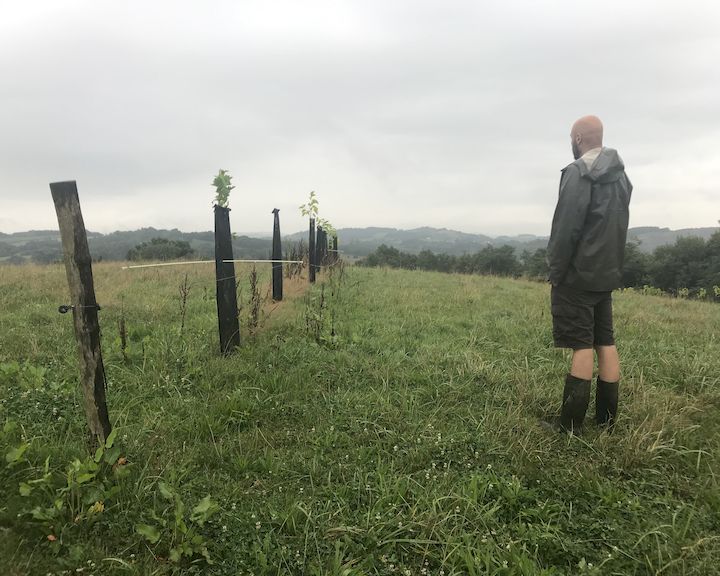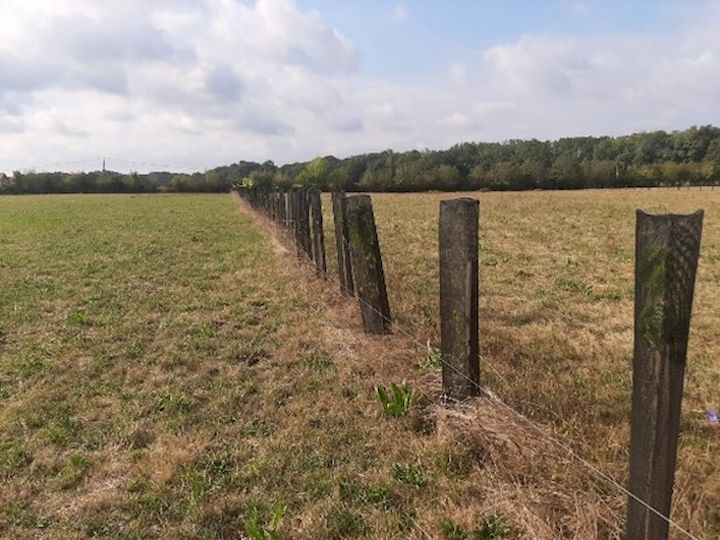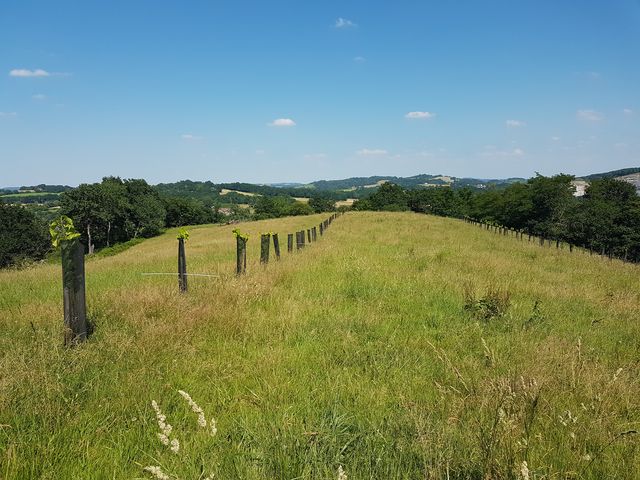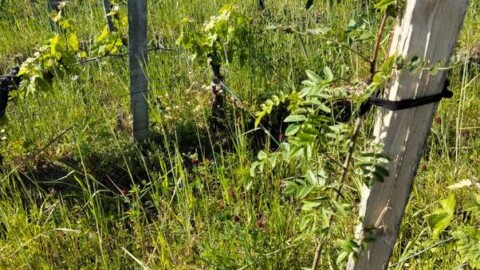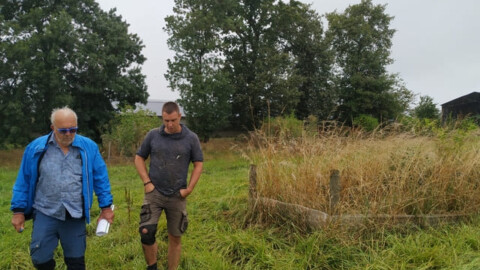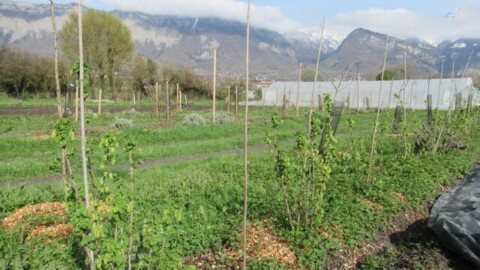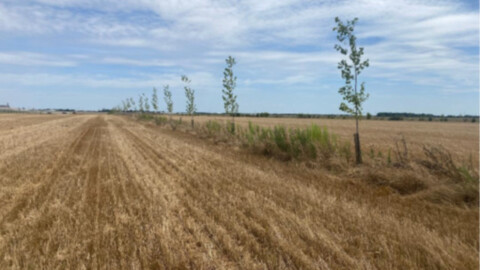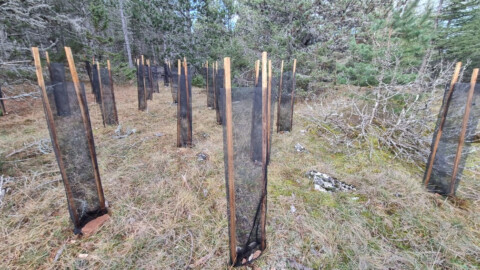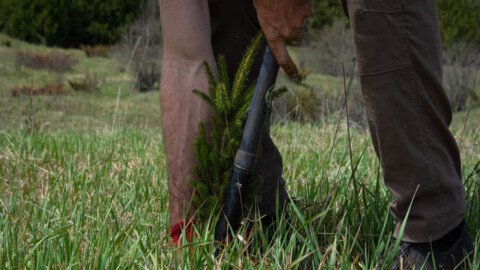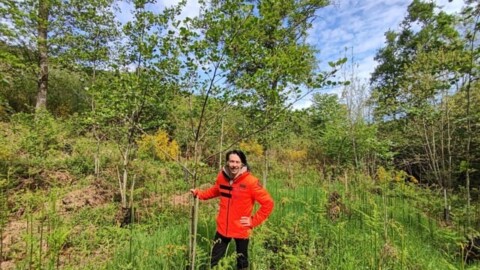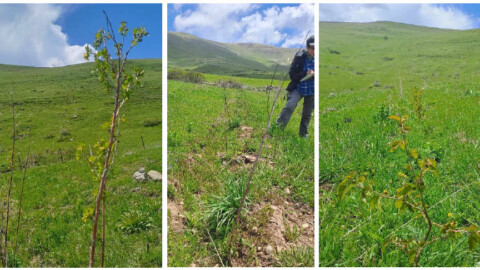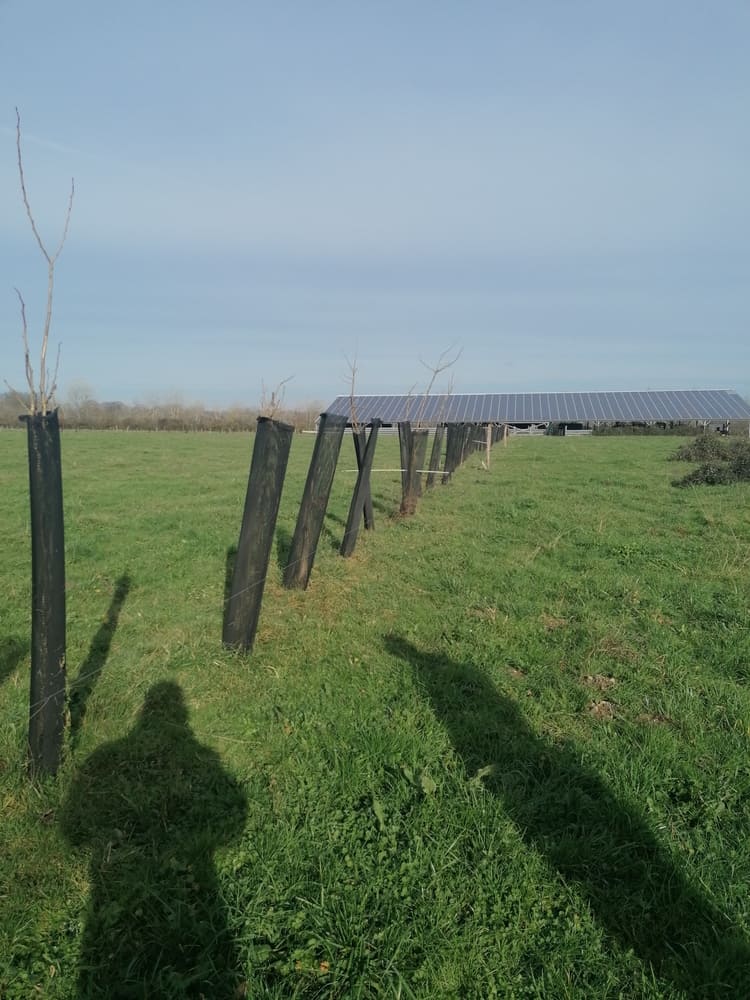
Pyrénées-Atlantiques department of France, October 2024
Sincere thanks for your generous support of Félix’s agroforestry project. A reminder: Félix rears Red Angus cattle in the Pyrénées-Atlantiques department of France. He has a herd of 150 heads (50 cows, 40 bullocks, and 60 youngsters under two years old) that are almost entirely,(99 %) grass fed.(99%) They are managed using a dynamic rotational grazing system.
This project aimed to establish 1,208 trees from 13 different species within the grazed plots. This initiative offers numerous benefits:
- provides an additional source of fodder for the cattle;
- creates a microclimate and shaded areas for better animal welfare with regards climate change;
- preserves grass production by promoting water infiltration and protecting grass with appropriately shady trees planted on dry slopes;
- regenerates soil and optimises pasture productivity;
- stores carbon and strengthens soil structure through tree roots and by stimulating soil fauna;
- enhances water infiltration in areas with stagnant water;
- diversifies production with fruit trees;
- creates a pleasant living and working environment for the farmer.
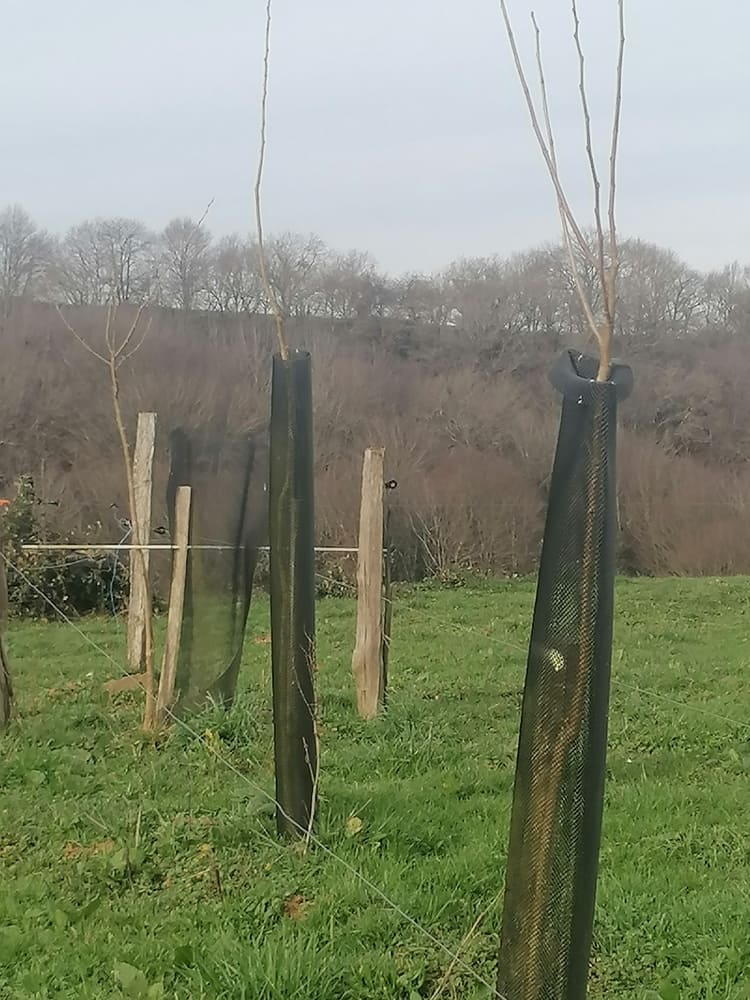
Thanks to your contributions, this project, in which kicked off in 2020, has planted 1,510 trees on the farm. Four years in, the results are mixed. Some technical challenges have affected tree growth. Certain tree guards failed, resulting in cattle trampling young trees. One planting area suffered from significant hydromorphy (excess water in the soil), which limited tree development. And a planting row near the river was poorly maintained and became overgrown with brambles, though it will still serve as a refuge for biodiversity.
These challenges stem partly from workforce issues and Félix’s extensive commitment to promoting agroecology across the region. Finding a farm manager should help him better balance these activities.
Despite such obstacles, Félix has shown his dedication by planting an additional 600 metres of biodiversity hedges together with the local hunting federation (department 64). Additionally, Félix’s farm has become a site for agroforestry education and awareness raising:
- students from Jean Errecart Technical College participated in the planting activities;
- training on managing white mulberry trees was organised in partnership with various organisations;
- the project has been featured in publications on Landfiles, the collaborative platform dedicated to the world of farming.
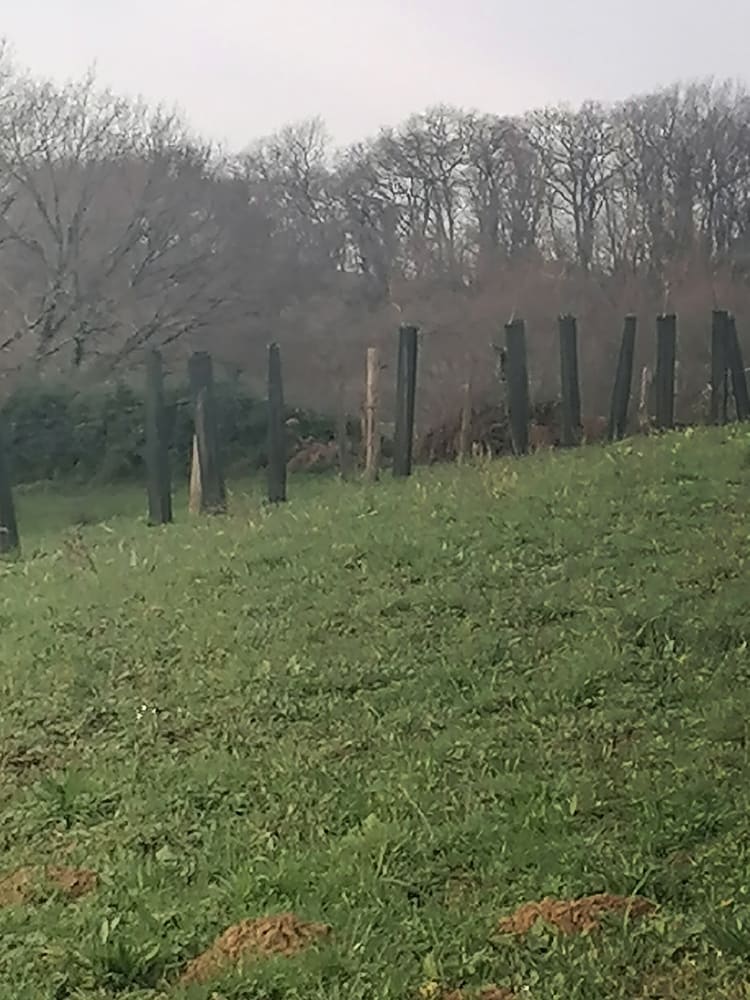
In conclusion, despite the challenges faced, Félix’s project is an inspiring example of agroecological commitment and a valuable training site. Your support has helped make it a local showcase for agroforestry. Our heartfelt thanks! We remain confident about the potential of Félix’s farm and its role as a model for sustainable agriculture.
To date, €2,694.99 remains outstanding from the initial budget. Since the project is now closed, we reallocated these funds to a project in Brittany that shares the same values and objectives as Félix: the ‘Agroforestry and animal welfare in Brittany’ project. Just like for Félix, this new project aims to introduce trees to grazed meadows to create a sustainable agroforestry system. Transforming 30 hectares of grassland by planting 1,869 trees of 28 different species, will deliver the following benefits:
- improve the well-being of the cowsby providing areas of shade and a favourable microclimate, just as Félix sought to do for his herd;
- regenerate the soil and boost the meadow productivity by improving water infiltration, protecting the grass from drying out, and enriching underground biodiversity;
- store carbon, while diversifying production thanks to the different species planted;
- create a resilient environment in the face of climatic challenges, while diversifying the farming income, an objective dear to Félix in the Pyrénées Atlantiques.
Previously on Félix’s project


